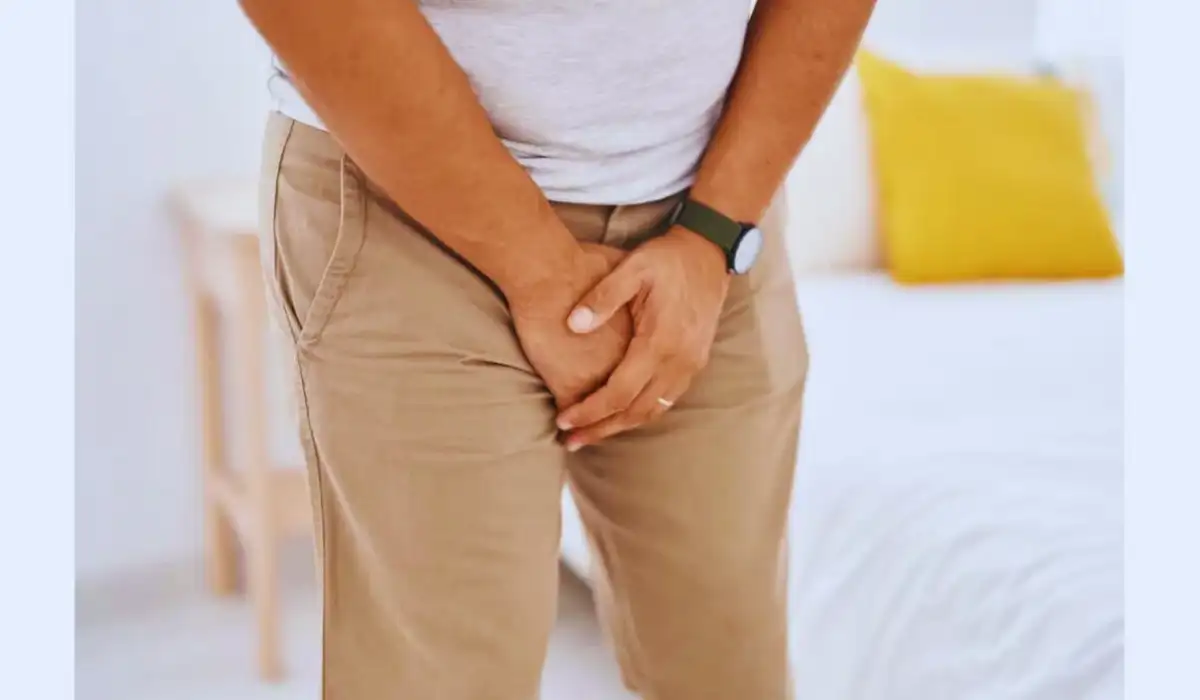Experiencing discomfort or pain in the lower abdomen or testicles can be a concerning issue for many men. One particular phenomenon that may cause anxiety is the occurrence of “sperm cramps.”
While the term “sperm cramp” is not a medically recognized condition, it is often used to describe a range of symptoms associated with testicular pain or discomfort in the lower abdomen, particularly during or after ejaculation.
It is essential to understand that the sensation of a sperm cramp can vary from person to person, and the causes behind this discomfort can be diverse.
Some men may experience a dull ache or a sharp, cramping sensation in their testicles or lower abdomen, while others may feel a sense of fullness or pressure. These symptoms can be temporary or persistent, depending on the underlying cause.
In this article, we will explore the possible causes of sperm cramps, including both benign and potentially serious conditions. We will also discuss when it is necessary to seek medical attention and what treatment options may be available.
By understanding the various factors that can contribute to testicular pain and lower abdominal discomfort, men can take steps to maintain their reproductive health and overall well-being.
What’s The Anatomy and Physiology Behind Sperm Cramps?

To comprehend the concept of sperm cramps, it is crucial to have a basic understanding of the male reproductive system. The testicles, located in the scrotum, are responsible for producing sperm and testosterone.
Sperm are produced in the seminiferous tubules within the testicles and then stored and matured in the epididymis.
During ejaculation, sperm travel from the testicles through the vas deferens and mix with seminal fluid from the prostate gland and seminal vesicles to form semen, which is then expelled through the urethra.
The muscles of the pelvic floor, including the bulbospongiosus and pubococcygeus muscles, contract rhythmically to propel the semen out of the body.
Understanding this complex interplay of structures and functions is essential when considering the various factors that can contribute to sperm cramps or testicular pain.
Possible Causes of Sperm Cramps
Several factors can contribute to the sensation of a sperm cramp or testicular pain. Some of the most common causes include:
➡️ Muscle Tension and Spasms
One of the most frequent reasons for experiencing a sperm cramp is muscle tension or spasms in the pelvic floor muscles.
These muscles, which support the reproductive organs, can become tense or contract involuntarily during ejaculation, leading to a cramping sensation in the lower abdomen or testicles.
➡️ Inflammatory Conditions
Inflammatory conditions, such as epididymitis or orchitis, can cause testicular pain and discomfort. Epididymitis is an inflammation of the epididymis, the tube that stores and carries sperm from the testicles, while orchitis is an inflammation of the testicles themselves.
These conditions can be caused by bacterial infections, viruses, or sexually transmitted infections (STIs).
➡️ Varicocele
Like varicose veins in the legs, a varicocele is an enlargement of the veins within the scrotum. This condition can cause a dull ache or discomfort in the testicles, which may be more noticeable during or after ejaculation. Varicoceles are often harmless but can sometimes contribute to infertility.
➡️ Prostatitis
Prostatitis, or inflammation of the prostate gland, can cause pain in the lower abdomen, testicles, and perineum (the area between the scrotum and anus).
This condition can be caused by bacterial infections, nerve irritation, or pelvic floor muscle spasms.
➡️ Testicular Torsion
Testicular torsion is a serious condition that occurs when the testicle rotates within the scrotum, cutting off its blood supply. This can cause severe testicular pain, swelling, and sometimes nausea and vomiting.
Testicular torsion is a medical emergency and requires immediate attention to prevent permanent damage to the testicle.
When to Seek Medical Attention?
While occasional sperm cramps or testicular pain may not be a cause for concern, there are certain situations in which it is essential to seek medical attention:
- Severe or persistent pain in the testicles or lower abdomen
- Swelling, redness, or tenderness in the scrotum
- Pain accompanied by fever, chills, or nausea
- Blood in the semen or urine
- Difficulty urinating or painful urination
- A lump or change in the texture of the testicles
Diagnosis and Treatment
If you experience persistent or concerning symptoms related to sperm cramps or testicular pain, it is crucial to consult a healthcare provider.
They will typically perform a physical examination, review your medical history, and may order additional tests, such as blood work, urine analysis, or imaging studies, to determine the underlying cause of your symptoms.
Treatment for sperm cramps and testicular pain will depend on the specific cause. In some cases, over-the-counter pain relievers, rest, and applying heat or cold packs to the affected area may provide relief.
If an infection is present, antibiotics may be prescribed. In more severe cases, such as testicular torsion, surgical intervention may be necessary.
Prevention and Self-Care
While not all causes of sperm cramps can be prevented, there are some steps men can take to maintain their reproductive health and reduce the risk of experiencing testicular pain:
- Practice good hygiene, including regular washing of the genital area
- Wear supportive, breathable underwear
- Engage in safe sexual practices and use protection to reduce the risk of STIs
- Stay hydrated and maintain a balanced diet
- Exercise regularly to promote overall health and reduce muscle tension
- Perform regular self-examinations of the testicles to identify any changes or abnormalities
Conclusion
In conclusion, sperm cramps, while not a medically recognized term, refer to a range of symptoms associated with testicular pain and discomfort in the lower abdomen, often experienced during or after ejaculation.
The causes of these sensations can vary, ranging from muscle tension and inflammatory conditions to more serious issues like testicular torsion.
It is essential for men to be aware of their reproductive health and to seek medical attention if they experience severe, persistent, or concerning symptoms related to sperm cramps or testicular pain.
By understanding the possible causes and taking proactive steps to maintain their health, men can work towards reducing the occurrence of these discomforting sensations.
Regular self-examinations, practicing good hygiene, engaging in safe sexual practices, and maintaining a healthy lifestyle can all contribute to better reproductive health.
However, if you do experience persistent or worrying symptoms, do not hesitate to consult a healthcare provider for proper diagnosis and treatment.
So, the next time you or someone you know experiences discomfort related to sperm cramps or testicular pain, remember that you are not alone, and there are resources available to help you navigate this concern.
The key is to stay informed, listen to your body, and prioritize your health. After all, when it comes to reproductive well-being, knowledge is power. Don’t you agree?

